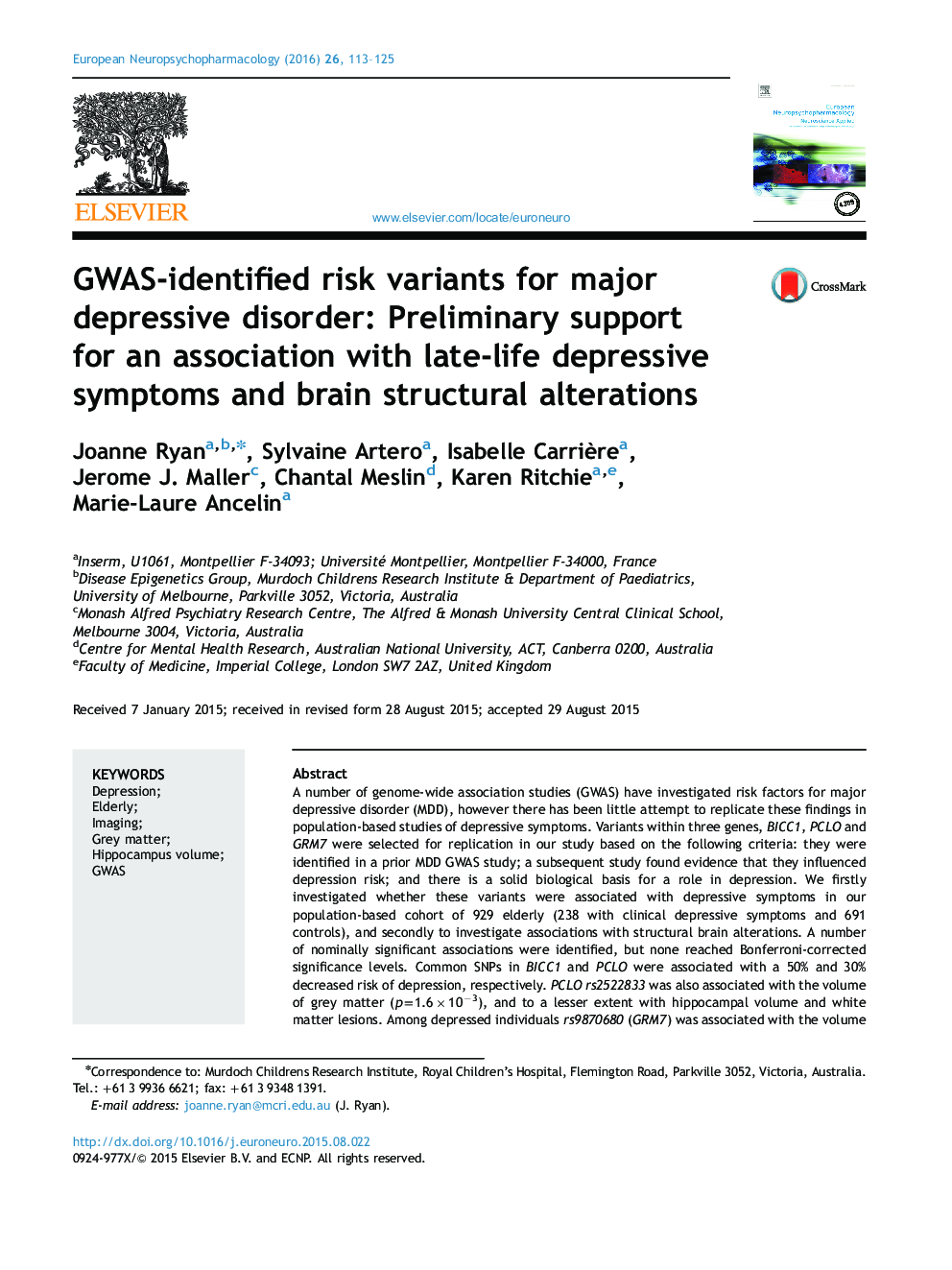| Article ID | Journal | Published Year | Pages | File Type |
|---|---|---|---|---|
| 10298798 | European Neuropsychopharmacology | 2016 | 13 Pages |
Abstract
A number of genome-wide association studies (GWAS) have investigated risk factors for major depressive disorder (MDD), however there has been little attempt to replicate these findings in population-based studies of depressive symptoms. Variants within three genes, BICC1, PCLO and GRM7 were selected for replication in our study based on the following criteria: they were identified in a prior MDD GWAS study; a subsequent study found evidence that they influenced depression risk; and there is a solid biological basis for a role in depression. We firstly investigated whether these variants were associated with depressive symptoms in our population-based cohort of 929 elderly (238 with clinical depressive symptoms and 691 controls), and secondly to investigate associations with structural brain alterations. A number of nominally significant associations were identified, but none reached Bonferroni-corrected significance levels. Common SNPs in BICC1 and PCLO were associated with a 50% and 30% decreased risk of depression, respectively. PCLO rs2522833 was also associated with the volume of grey matter (p=1.6Ã10â3), and to a lesser extent with hippocampal volume and white matter lesions. Among depressed individuals rs9870680 (GRM7) was associated with the volume of grey and white matter (p=10â4 and 8.3Ã10â3, respectively). Our results provide some support for the involvement of BICC1 and PCLO in late-life depressive disorders and preliminary evidence that these genetic variants may also influence brain structural volumes. However effect sizes remain modest and associations did not reach corrected significance levels. Further large imaging studies are needed to confirm our findings.
Related Topics
Life Sciences
Neuroscience
Biological Psychiatry
Authors
Joanne Ryan, Sylvaine Artero, Isabelle Carrière, Jerome J. Maller, Chantal Meslin, Karen Ritchie, Marie-Laure Ancelin,
